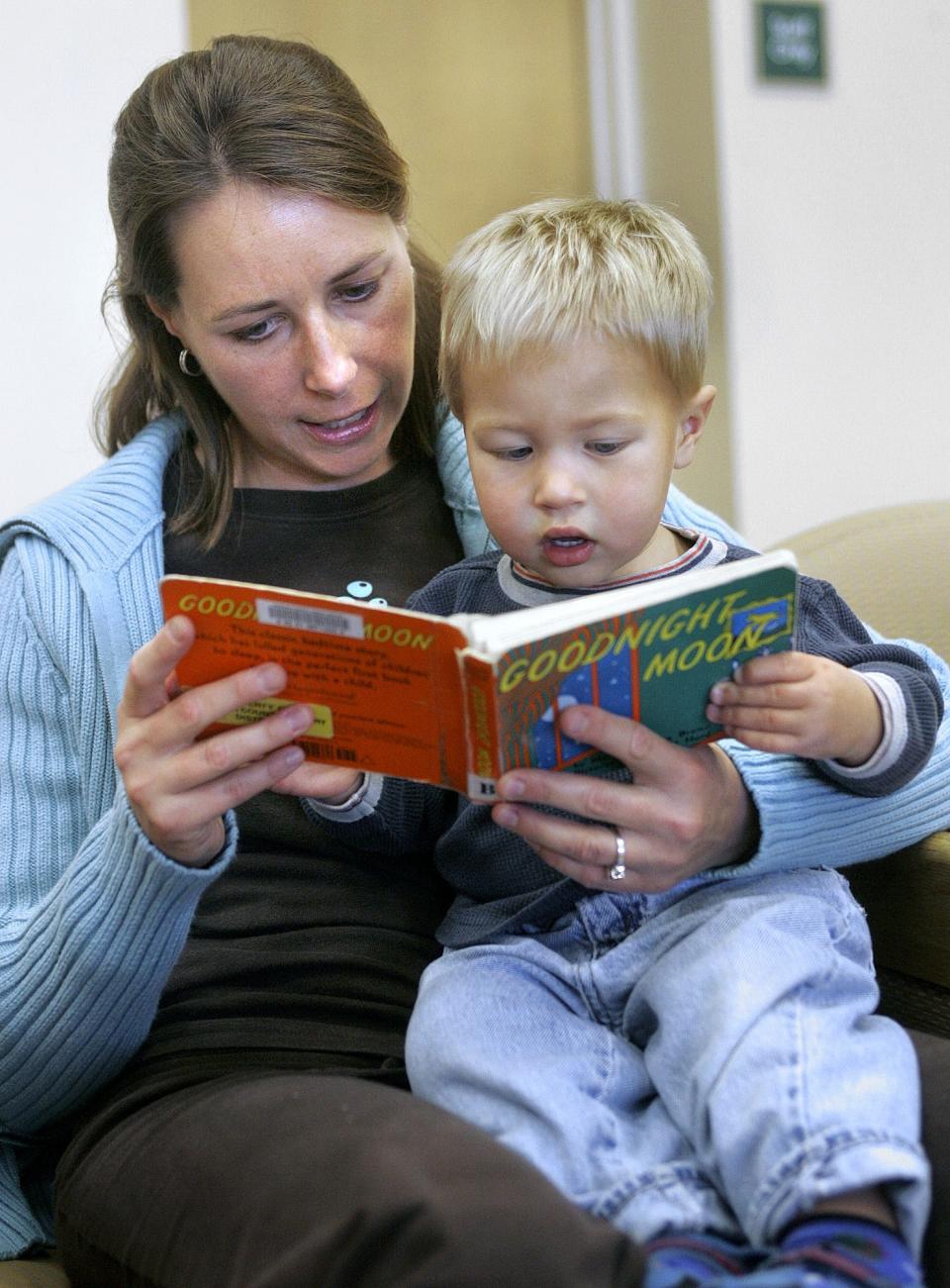School is starting. Here's how parents can help children learn to read
As students return to the classroom for a new school year, parents and families can play a role in helping their children achieve one of the key milestones of elementary school: learning to read.
Lori Masseur, the early literacy director for Read On Arizona, offered tips for how parents and families can support their children's literacy efforts. Read On Arizona is an initiative launched in 2013 to improve language and literacy outcomes for children in the state.
What can I do before my child starts school?
Parents can help lay the foundation for their child's literacy skills even before they're old enough to start school, Masseur said.
A child's brain in the "first five years is growing at such a rapid pace that it's such an opportune time to take advantage of the language development that's happening," she said.
Masseur encourages parents to read to their children for 20 minutes a day, starting when they are infants.
But she said there are other ways to build vocabulary and support language development beyond reading a book — like simply talking with a child.
Back-and-forth conversations with babies and toddlers are a way "to introduce new and unusual and funny and quirky words to young children" and build an "awareness of words and that words carry meanings," Masseur said.
"We can be having these very robust conversations ... even with children in infancy," she said.
Families can support a child's language development anywhere, at any time — in the car, at the grocery store or on a walk in the park, Masseur said. Parents can point out words and letters in their surroundings, like grocery store labels or street signs.

"There's just these little moments ... to point out literacy within the environment, not just within a classroom or home," she said.
Parents can describe what's happening around them and ask their children questions to help build vocabulary. They can sing songs, tell stories and "do silly rhymes that are focusing on alliteration," Masseur said.
"Those types of things are a great way for families to engage and play with language," she said.
Back to school: More Phoenix-area schools are starting early this year
How parents can encourage literacy once a child is in school
Masseur advises parents to establish a relationship with their child's teacher on day one. Parents can ask what's happening in the classroom, what the teacher is noticing, and how they can help support their child's learning at home with activities or homework.
"Don't wait until you have a concern to establish a relationship with your child's teacher," she said.
As a child begins to learn to read, parents can support their efforts by helping them sound out tricky words, look for spelling and word formation patterns — like finding a smaller word within a larger word — and identify prefixes and suffixes. Supporting children with these skills can also help them build confidence and view themselves as readers, Masseur said.
When a child is around 6 years old, parents can help them practice two essential skills: blending and segmenting. Blending consists of combining sounds to create a word, while segmenting involves breaking a word down into individual sounds.
These skills are foundational elements of reading, Masseur said, and serve as an indicator of reading success.
"Blending and segmenting sounds is something that I say families can do in the dark," Masseur said. "You don't need to actually see the word 'cat' to play with the sounds in the word with a child, and then have them think about, 'What if I were to substitute out that beginning sound?'"
Masseur encourages families to know the typical milestones for language and literacy development. These milestones include holding books, looking at pictures and saying 15-300 words at 2 years old; starting to match letters with sounds and using complex and compound sentences at five years old; and reading chapter books and learning an estimated 3,000 words a year at eight years old.
While she encourages parents to reach out to their child's teacher if they are concerned about their child's literacy development, Masseur also urges them not to compare their child to others.
"Every child develops at their own rate," she said.
How can I get my child to be excited to read?
Let children of all ages choose the books they'd like to read or have read to them, Masseur said.
"Leaning into their own interests is going to help cultivate that love of reading," she said.
Literacy development in older children doesn't just have to come from chapter books, she said.
“The idea that it has to be this traditional chapter book is sort of a myth," she said. A child might be interested in reading a graphic novel, so let them.
Children love repetition, Masseur said, and re-reading stories helps them develop skills they'll need later on.
"If a child wants you to read a book 10 times, let's read the book 10 times," she said. "Let's not discourage them from that repetition that allows them the ability to retell the story," which is a skill they'll be asked to do as they get older. Repeated readings also help children practice making predictions, Masseur said.
Parents can ask their children questions while reading to help them think critically, build comprehension and support active engagement with the book, Masseur said.
"I wonder what's going to happen next?" or "If they did this, what do you think would happen?" are examples of questions that can help to build those skills and foster a connection with the child, she said.
Read On Arizona's early literacy resources can be found at readonarizona.org.
Madeleine Parrish covers K-12 education. Reach her at mparrish@arizonarepublic.com.
This article originally appeared on Arizona Republic: Parents can help kids learn to read. Here's how to aid literacy

